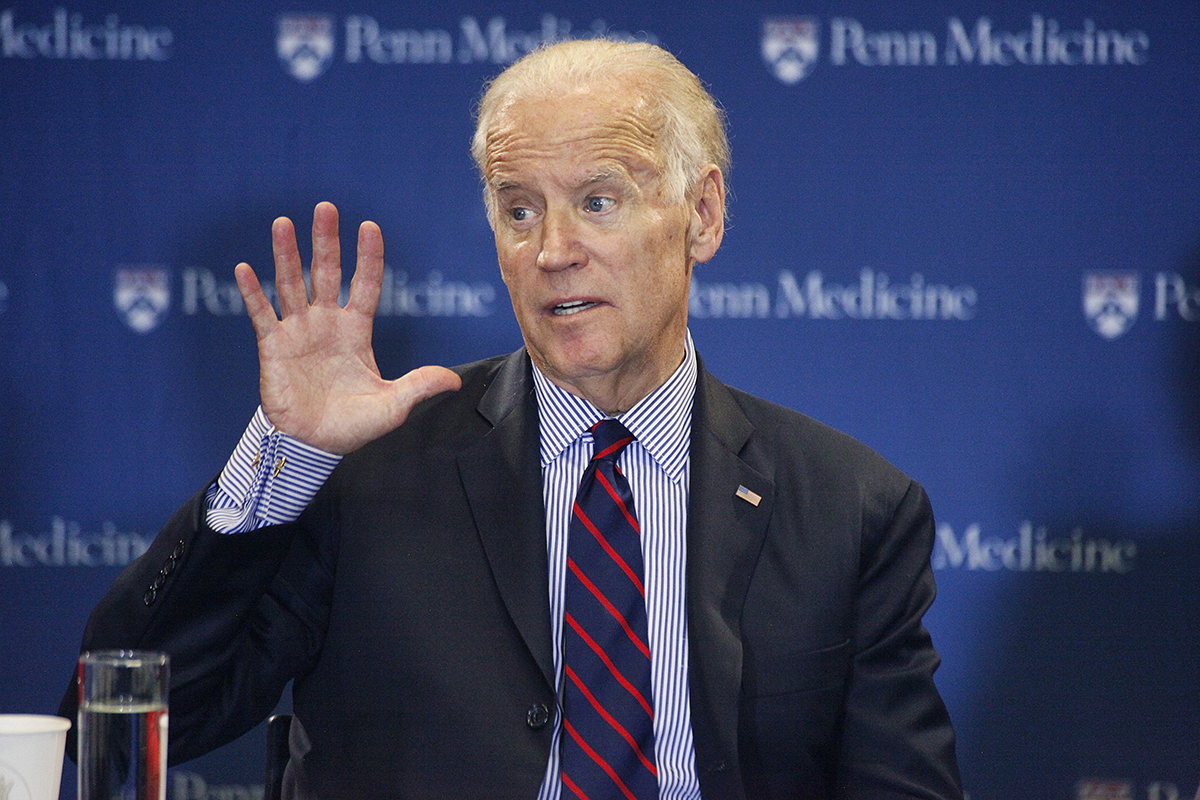Biden Says We Can Achieve 50 Years of Cancer Progress in Next Decade

Photo via AP/Star Shooter/MediaPunch/IPX
Joe Biden promised in a speech Wednesday to use his Cancer Moonshot initiative to break down inefficiencies and bureaucracy in the medical research world, expediting the race toward a cure.
“At its core, the Moonshot is about two things: One, injecting the urgency of now into everything we do,” Biden said. “And two, changing the system and culture of medicine that existed in 1971 [when Nixon’s war on cancer began] to accommodate the immense opportunity that exists in 2016.”
Biden was at Boston’s Edward M. Kennedy Institute for the United States Senate to discuss the Moonshot, an effort to “change cancer as we know it” and move closer to a cure.
Biden noted that medicine, technology, and science have advanced immensely since the war on cancer was declared, particularly in fields like immunology, genomics, and computing. Such advances will open the door to better treatment and discovery—but only if the medical system can support them.
As such, Biden said the Moonshot will work to “break down silos” in the research world and share data among researchers, in order to facilitate faster discoveries. “[We’ll] make medicine what it wasn’t in 1971,” Biden said. “Make it a team sport.”
The initiative is also trying to streamline the clinical trial registration process—the old website, Biden said, is “written in Sanskrit. It’s basically useless”—so that patients who wish to join studies are able to find them easily. The vice president also mentioned an effort to pre-negotiate drug licenses to make it easier for researchers to experiment with pharmaceutical combinations.
Of course, the Moonshot is also working to advance research. Biden’s Blue Ribbon Panel, which includes a number of experts from Boston, released a list of 10 high-priority issues last month, including immunotherapy, drug resistance, and pediatric cancer research.
In his speech, Biden also noted the need to emphasize better preventive measures and diagnostic techniques. The onus of prevention, he said, falls partially on the government.
“The government has an obligation to deal with carcinogens in our air, in our soil, in our water, which are a significant cause of cancer,” he said.
Biden mentioned his late son Beau, who succumbed to an aggressive brain cancer in 2015, several times throughout the speech. He also spoke compassionately of the cancer patients worldwide holding on for graduations, birthdays, and weddings—the cancer patients the Moonshot aims to cure, and the ones who motivate Biden and doctors everywhere.
While the road ahead is long, Biden spoke firmly of the medical world’s ability to push far beyond the progress of the past half century.
“It gives me every confidence in the world that we’re on the cusp of enormous, enormous, enormous progress,” he said. “The one thing I know: This country has the capacity to do anything it sets its mind to. We’re going to do in the next 10 years what took 50 years to do before.”


